Directly related subjects
The Ministry of Education and Training has just announced the review and adjustment of some contents in the General Education Program (GEP) to ensure its suitability to reality and the new development context.
Accordingly, the 2024-2025 school year is the year in which the 2018 General Education Program will complete a cycle from grade 1 to grade 12 according to the roadmap. In 2025, the review of the program and textbooks will be carried out in the context of the whole country implementing the arrangement of provincial-level administrative units according to Resolution No. 202/2025/QH15 dated June 12, 2025 of the National Assembly on the arrangement of provincial-level administrative units.
Based on the review, the Ministry of Education and Training has identified a number of subjects that are directly affected by the change of administrative boundaries, including: History and Geography for grades 4, 5, and 9; Geography for grade 12; History and Economic and Legal Education for grade 10. These subjects will take steps according to regulations to revise the subject curriculum as a basis for revising textbooks, such as updating requirements, knowledge content, place names, data, maps, charts, and socio-economic information, etc.
According to the Ministry of Education and Training, the revision of subject programs is carried out on the principle of minimizing changes to textbooks and strengthening guidance so that teachers and schools can proactively implement the program according to their authority to suit reality.
In the coming time, the Ministry of Education and Training will issue documents directing and guiding localities and schools to implement the program continuously, without interruption and in accordance with reality. The Ministry of Education and Training is urgently completing the review and assessment of the implementation of the 2018 General Education Program to update and adjust a number of subjects to ensure that the Program is implemented in accordance with reality, better meeting the requirements of innovation and the socio-economic development of the country through each period; including subjects affected by administrative boundary adjustments.
The Ministry of Education and Training will guide publishers, organizations and individuals with approved textbooks to edit necessary content to update new administrative information in the direction of ensuring the stability of textbooks and effectiveness in teaching and learning implementation.
Regarding local education content, based on Resolution No. 202/2025/QH15 of the National Assembly on the arrangement of provincial-level administrative units, on the basis of the framework program and documents issued by the Ministry of Education and Training, localities proactively select and develop local education content, ensuring that it is suitable for the characteristics of the new administrative unit and the two-level local government organization model, promoting local initiative in organizing program implementation, while ensuring that education content is promptly updated according to new administrative and social changes.
Does not affect students in studying and taking exams
As one of the leading experts and has participated in compiling the History and Geography textbook program, Associate Professor, Dr. Nghiem Dinh Vy, Editor-in-Chief of History and Geography Textbooks for Primary and Secondary Schools, the book series "Connecting knowledge with life" commented: "The change of administrative boundaries has a direct impact on the content of textbooks, especially the subjects of History and Geography. The policy of merging provinces is a good step forward, bringing many benefits, but at the same time it also requires updating and adjusting teaching content. Without timely adjustments, students, especially at the secondary level, may have difficulty in identifying place names and understanding new administrative changes".
According to Associate Professor Nghiem Dinh Vy, last May, the Ministry of Education and Training established research groups to review, edit and develop the program, ensuring that the textbook content accurately reflects changes in administrative boundaries. Currently, related subjects such as History and Geography at primary, secondary and high school levels have completed the review step. In the coming time, the Ministry will propose additional necessary adjustments to support teachers and students in teaching and learning better.
Accordingly, place names are an element that needs to be prioritized for updating because they appear throughout the programs from grades 4 to 12.
The topics that need to be prioritized for revision after administrative boundary changes are mainly Vietnamese history, because administrative boundary changes directly affect the presentation of historical events associated with each locality. Basically, all related content needs to be reviewed and revised, but the extent of change will vary depending on each region.
Currently, according to the annual plan, textbooks have been printed for the new school year. The immediate solution, according to Associate Professor Nghiem Dinh Vy, is that the Ministry of Education and Training needs to issue guidelines so that teachers can proactively update and supplement their knowledge during the teaching process. A long-term solution is that after July 1, when the official boundaries are announced, the Ministry needs to direct the Education Publishing House to coordinate with textbook authors to adjust the content, ensuring accuracy for the next school year. At the same time, teachers also need to proactively review documents and adjust teaching content to suit the actual situation, combined with instructions from the Ministry to ensure the quality of education.
And in order for the change in textbook content to not cause disruption to students and teachers, it is important, according to Associate Professor Nghiem Dinh Vy, to ensure stability in teaching. The most affected subjects such as History, Geography, Economic Education and Law will be carefully reviewed to ensure accuracy without causing major impacts on students during their studies and exams.
Regarding local subjects, nothing will change. For example, the Kinh Bac Quan Ho tradition of Bac Ninh and Bac Giang will be preserved, despite the change in boundaries. Similarly, traditional festivals of the southern provinces such as the sea god worship ceremony will still be fully reflected. When rewriting local history content, the most important thing is to have a unified viewpoint. The merger of provinces is of great significance, so when recompiling the content, the authors cannot just focus on each individual province but need to find common features. However, the unique characteristics of each region must still be clearly shown.
Source: https://baophapluat.vn/han-che-toi-da-su-thay-doi-sach-giao-khoa-khi-thay-doi-dia-gioi-hanh-chinh-post552611.html




![[Photo] Prime Minister Pham Minh Chinh holds meeting to launch exhibition of national achievements to celebrate 80th National Day](https://vphoto.vietnam.vn/thumb/1200x675/vietnam/resource/IMAGE/2025/6/23/0c0c37481bc64a9ab31b887dcff81e40)
![[Photo] Party Congress of the Central Internal Affairs Commission for the 2025-2030 term](https://vphoto.vietnam.vn/thumb/1200x675/vietnam/resource/IMAGE/2025/6/23/5bf03821e6dd461d9ba2fd0c9a08037b)


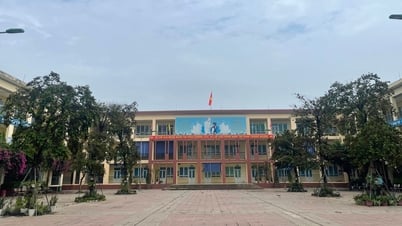















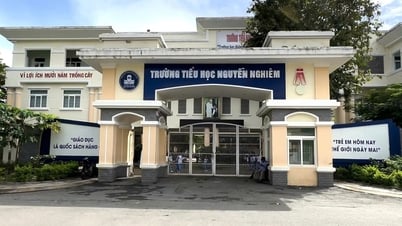











![[Photo] Conference to disseminate the implementation of the Plan to promote digital transformation to meet the requirements of restructuring the political system's apparatus](https://vphoto.vietnam.vn/thumb/1200x675/vietnam/resource/IMAGE/2025/6/23/4744403cccd144b79086799e2ceb686e)































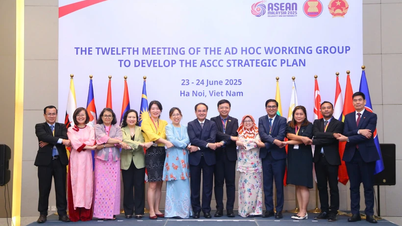



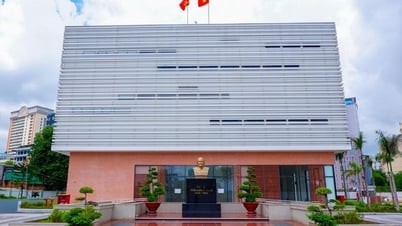



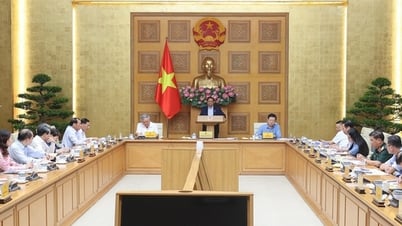








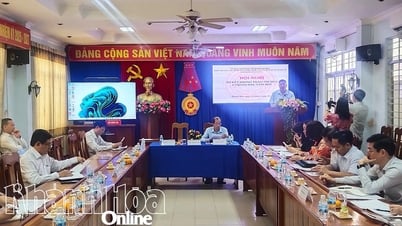



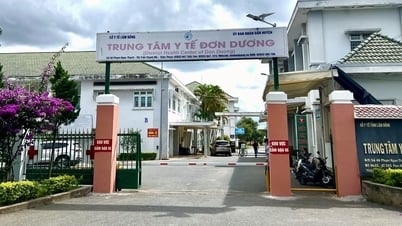













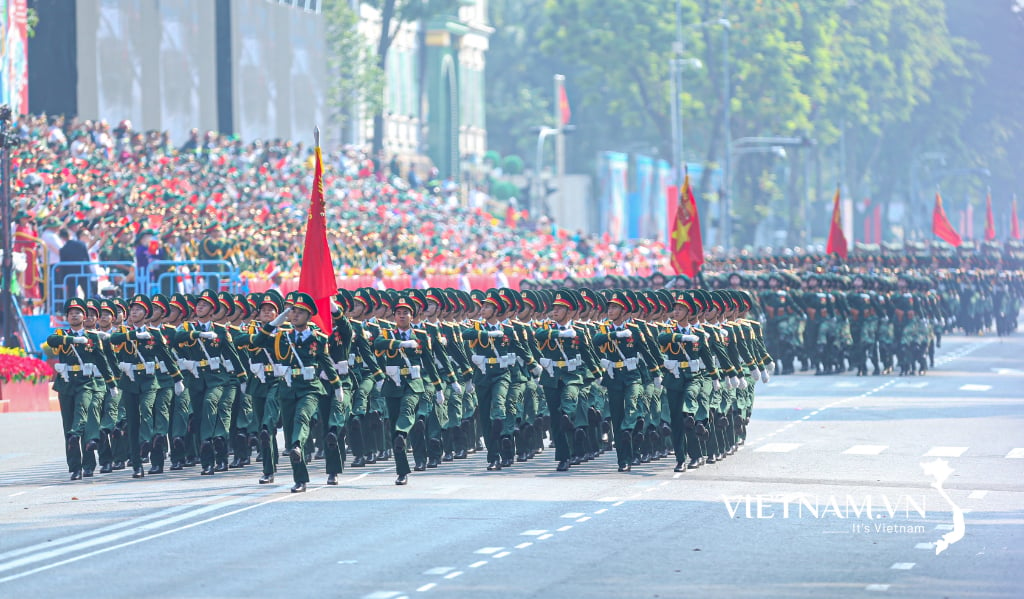


Comment (0)